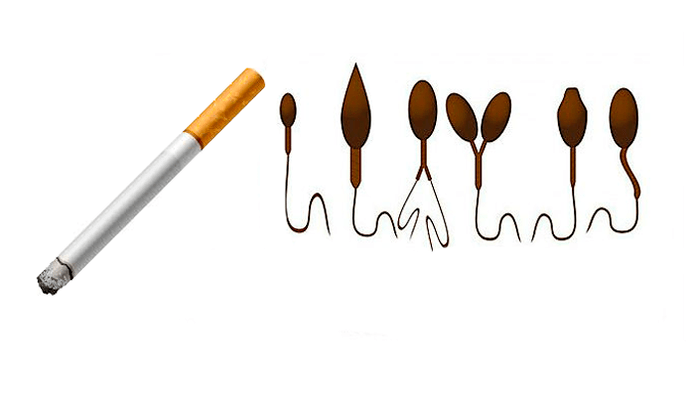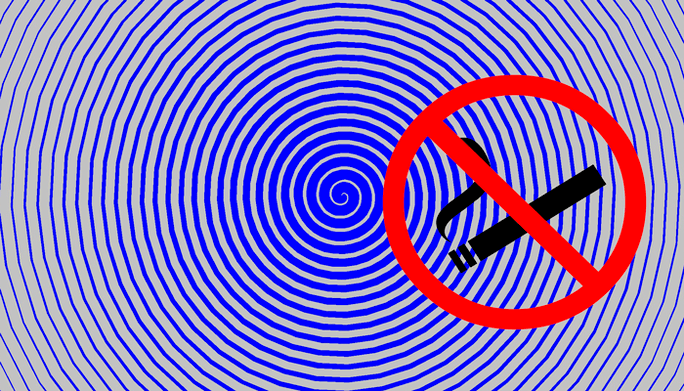It is no secret that bad habits do not bring health benefits, but only harm. Smoking is mistakenly considered a less dangerous habit, but it is not.
After all, tobacco smoke negatively affects absolutely all systems and organs of the human body. And, of course, men's health is also a concern. How does smoking affect strength in men? This article will answer this question.
Effects of tobacco smoke on blood vessels
Smoking and power are incompatible things. This is due to damage to the blood circulation, including the genitals.
Oxygen is the most important component of the vital activity of every cell of the human body. Red blood cells are responsible for delivering oxygen.
So during each breath in the lungs, the pulmonary circulation erythrocytes are saturated with oxygen molecules.
With the next heartbeat, saturated red blood cells are sent to the systemic circulation and transport oxygen throughout the body with arterial blood flow.
Once the blood cells (erythrocytes) have given up oxygen, they take in carbon dioxide from the cells and return to the heart with venous current.
Again, red blood cells are redirected to the small (pulmonary) circulation and in the lungs are released from carbon dioxide, which is excreted upon excretion.
The same process occurs when you smoke, but instead of oxygen, erythrocytes carry molecules of tobacco smoke saturated with substances harmful to the body:
- Carbon monoxide;
- Acetaldehyde;
- Nicotine;
- Hydrazine;
- Ammonia;
- Benzene;
- Acetone;
- Nitrogen oxides;
- Formaldehyde;
- Acrolein;
- 2-Nitropropan;
- Hydrogen cyanide and about 4700 other toxic chemical compounds in various sizes.
Nicotine is a substance that leads to addiction and the development of tobacco addiction.
Toxic substances of tobacco also affect the circulatory system.
So, tobacco products affect the deposition of cholesterol in blood vessels, provoke blood density, ie increase the risk of thrombosis.
Smoking severely narrows blood vessels, which reduces blood flow to small vessels and capillaries throughout the body.
Such processes affect the whole body and are the cause of the development of such diseases and pathologies:
- Brain (smoking causes headaches, irritability, insomnia, brain cancer, stroke);
- Gastrointestinal tract (violation of digestive function, impaired appetite, severe intestinal disorders - diarrhea, gastritis, peptic ulcer);
- Vision (impaired visual acuity, amblyopia (smoking), cataract);
- Affects hearing acuity - hearing loss;
- Teeth (yellow plaque, tooth loss, gum disease);
- Nail plates with a yellow tinge;
- Skin (dark circles under the eyes, gray skin tone, early wrinkles, skin pigmentation);
- Cardiovascular system (hypertension, ischemia, heart attack, severe damage and thinning of blood vessel walls, edema, varicose veins, gangrene);
- The combination of smoking and power is manifested by such pathological processes as impotence, poor sperm motility. In women, pathology of pregnancy, fetal development, labor activity.
After reviewing this list, you need to consider whether the cigarette is worthy of the risk of developing such consequences.
How does smoking affect potency?
Does smoking affect potency? Impotence in smokers is associated precisely with damage to the vessels that ensure the blood supply to the penis.
Moreover, the process of deterioration of the condition of blood vessels is also observed in beginner smokers and passive smokers (frequent presence in smoky rooms).
Also, the suppression of the endocrine system affects the state of health of men. During a toxic attack (smoking), the body goes into a state of emergency.
Endocrine gland functions are redirected to protect the immune system and other human systems. But testosterone production (secreted by the prostate gland) already lacks energy and strength.
The effect of smoking on potency depends on the duration of smoking and the number of cigarettes smoked, but even one cigarette affects erectile activity and reduces it by 20%. Too often, smoking is combined with frequent use of alcoholic beverages, daily stress.
And temporary impotence can be attributed to nervous work, overwork, but not smoking. Of course, both stress and alcohol affect male strength, but smoking is not the last. Quitting smoking can lead to normal erections over time.
Statistical data
How does smoking affect potency? According to statistics, out of 120, 000 middle-aged men (28-52 years old) surveyed, they have temporary or permanent erection problems (impotence). At the same time, only 15% of (impotent) men understood the relationship - smoking and potency in men.
Reduced testosterone levels inhibit sexual desire, "lust" is reduced to almost zero. This problem should lead a man to the idea of discovering the reason that damaged power.

And one of the main causes of erectile dysfunction is the impact of smoking. So smoking 1 pack of cigarettes a day leads to male impotence in 60% of cases.
Smoking and impotence are directly related. But in addition to erectile function, reproductive function is also impaired, so smoking worsens sperm quality. According to statistics, in 75% of experienced smoking men, sperm are unable to fertilize a female egg.
Treating Tobacco Addiction
The negative impact of smoking on strength in men makes it necessary to take measures to stop smoking and restore erectile function.
To get rid of nicotine addiction, a smoker with an impressive experience lacks the willpower and withdrawal syndrome manifests itself with a significant deterioration in health.

Symptoms of nicotine withdrawal are:
- Increased appetite;
- Irritability;
- Inability to concentrate (attention is distracted by the thought of a cigarette);
- Ankthi;
- Bad mood.
The treatment of this addiction should have an integrated approach that combines the elimination of psychological and physical components.
The psychological factor of nicotine addiction is eliminated by hypnotherapy, psychotherapy, reflexology, medications. In the treatment process, the desire to smoke decreases.
Reflexology - Acupuncture on active points can boast of great popularity and good results.
This method can significantly reduce the level of addiction, as well as eliminate the symptoms of nicotine withdrawal.

Tobacco addiction is considered stronger than alcohol or drug addiction. 60% of male smokers need professional help. Only 5% of long-term smokers successfully quit and completely quit smoking without outside help.
Before proceeding with the choice of treatment method, it is necessary to diagnose the health status of the smoker and the severity of nicotine addiction. The severity of addiction is determined using several psychological tests, for example, the Karl Fagerström questionnaire (Sweden).
The simplified form of the questionnaire consists of three questions:
- How many cigarettes are smoked per day?
- How long does it take to smoke the first cigarette?
- Is there a strong desire to smoke or are there withdrawal symptoms?
This information is enough to find out the real condition of the man and to choose the method of his treatment.
Most often, smokers try to forget about smoking cessation by replacing them with food. In this case, you need to monitor the calorie content so as not to gain excess weight.

It is recommended to follow a diet according to the principle of special food - in small portions, but often.
This way of feeding, you can replace the smoke breaks even in time. Peppermint and lollipop help well, as well as a bit of nicotine.
Conclusion
By giving up bad habits, including smoking, the body begins to clear itself of nicotine after two hours, on day 2-3 the tobacco sediment with sputum comes out of the alveoli, the circulatory system already gives oxygen to the body and notsmoking. products. The craving for nicotine decreases within a month.
Along with restoring the structure of the walls of blood vessels, it improves blood circulation to all organs and systems, including the penis, which means that quitting smoking helps normalize the strength and quality of sperm.
Therefore, it is worth forcing yourself to give up this addiction and qualitatively improve your lifestyle.
According to the comments of former smokers, quitting smoking is difficult but possible. If within six months the smoker has not started smoking again, then this time is quite enough for complete cleansing of the body and gradual restoration of all functional abilities.







































